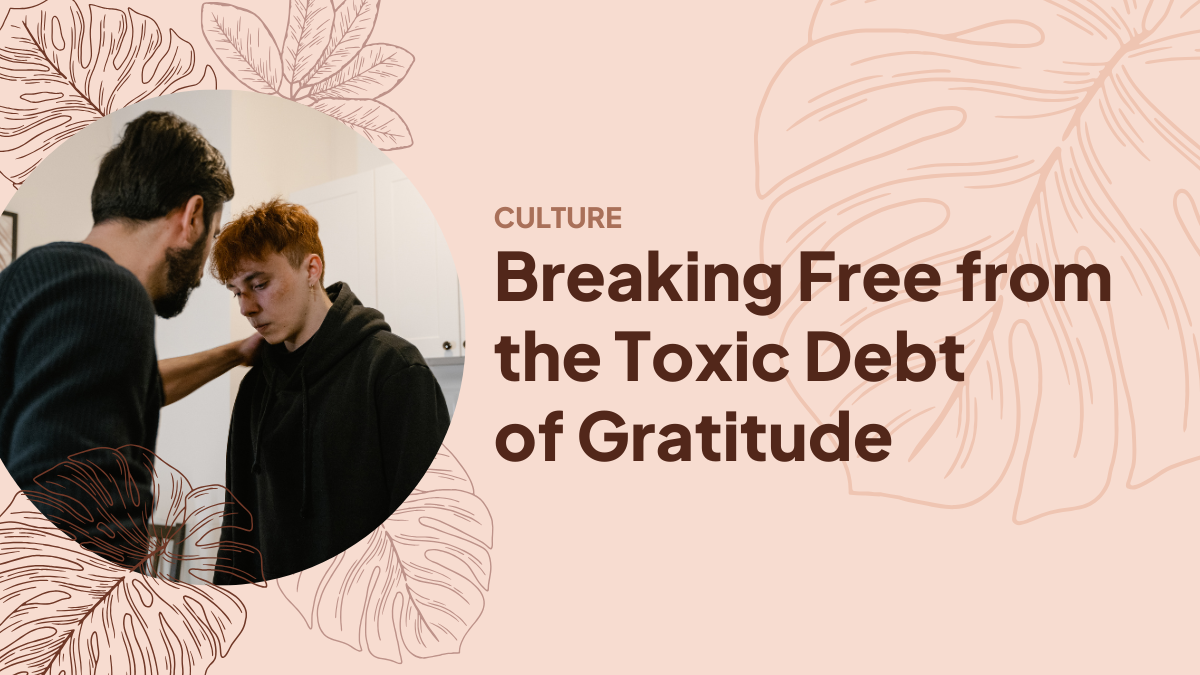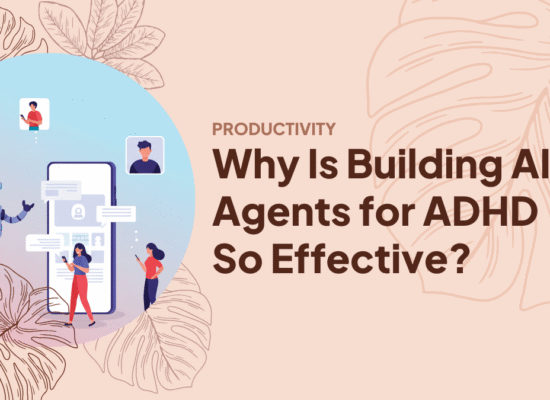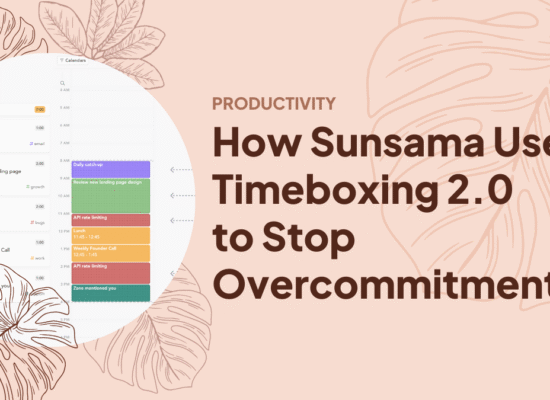Table of Contents
Debt of gratitude can become poison. This statement might seem contradictory until we examine how the beautiful act of appreciation transforms into the burden of obligation.
We Filipinos understand this transformation intimately through our concept of utang na loob or debt of gratitude. What begins as genuine thankfulness often morphs into something heavier, something that binds rather than liberates.
This cultural cornerstone shapes our relationships, decisions, and even our sense of self. But when does this deeply ingrained aspect of Filipino family values cross the line from virtue to vice?
Let’s explore the complex psychology behind debt of gratitude, why it can become dangerous, and how we might preserve the beauty of thankfulness without the burden of indebtedness.
The Cultural Roots of Utang na Loob
Before Spanish colonization, indigenous Filipino communities already practiced forms of reciprocity and mutual aid. These systems helped maintain social harmony in village life, creating networks of support that ensured collective survival.
When Spanish colonizers arrived in the 16th century, they brought Catholicism and its emphasis on charity, obligation, and moral debt. This religious framework reinforced and transformed existing Filipino values.
The colonial experience itself shaped how utang na loob evolved. Under Spanish rule, Filipinos often needed to seek favors from those in power, creating patterns of patronage and obligation that persisted for generations.
Today, debt of gratitude remains a cornerstone of Filipino social relations. At its best, it represents our commitment to reciprocity and gratitude. At its worst, it becomes a tool for manipulation and control.
The concept extends beyond simple favors. It encompasses the profound sense of indebtedness we feel toward parents, mentors, friends, and even institutions that have supported us.
Unlike financial debts with clear repayment terms, debt of gratitude creates psychological obligations that can’t be quantified or fully repaid, leaving the indebted person perpetually beholden to the benefactor.
When Gratitude Becomes a Trap
The transformation from healthy gratitude to toxic obligation happens subtly. We might not notice the shift until we’re already caught in its grip.
Healthy gratitude feels expansive. It opens our hearts, strengthens connections, and inspires generosity. It comes without strings attached and flows freely between people.
In contrast, debt of gratitude feels constrictive when weaponized. It creates anxiety, resentment, and a sense of being controlled. The relationship becomes transactional rather than genuine.
Research shows this distinction clearly. When expectations for repayment increase, studies find that indebtedness increases while actual gratitude decreases. External pressure transforms what should be a positive emotion into a negative obligation.
Consider these warning signs that debt of gratitude has become unhealthy:
- The benefactor frequently reminds you of what they’ve done, using phrases like “after all I’ve done for you” to influence your decisions
- You feel unable to say no to requests, even when they compromise your values or wellbeing
- The relationship feels imbalanced, with one person always giving and the other always receiving
- You experience anxiety, guilt, or shame when interacting with the person to whom you feel indebted
- Your choices are limited by your sense of obligation rather than guided by your authentic desires
The Psychological Cost of Indebtedness
The weight of perpetual obligation takes a significant toll on mental health. Living under constant debt of gratitude creates chronic stress as we worry about meeting others’ expectations.
This stress manifests physically too. Tension headaches, digestive issues, and disrupted sleep often accompany the psychological burden of utang na loob.
Beyond physical symptoms, indebtedness erodes our sense of autonomy. Each decision becomes filtered through the lens of obligation rather than personal choice.
Our identity itself can become entangled with our debts of gratitude. We may define ourselves primarily through our obligations to others rather than through our own values and aspirations.
In extreme cases, toxic debt of gratitude contributes to what psychologists call “learned helplessness” – a state where we believe we have no control over our circumstances. We become passive recipients of others’ demands rather than active agents in our own lives.
The most insidious aspect? Many victims don’t recognize their situation as problematic because the manipulation comes wrapped in the culturally sanctioned package of utang na loob.
Manipulation Through Gratitude
Those with manipulative intentions understand the power of debt of gratitude all too well. They strategically create situations where others become indebted to them, then leverage that indebtedness for control.
In Filipino politics, we see this dynamic play out repeatedly. Politicians provide favors to constituents, then expect unwavering loyalty in return. This pattern perpetuates corruption and undermines democratic processes.
Within families, parents may use their sacrifices as emotional leverage, making children feel perpetually indebted and unable to make independent choices without guilt. This represents one of the most damaging aspects of toxic family culture.
In workplaces, bosses might grant special accommodations only to later demand unpaid overtime or personal favors, exploiting the employee’s sense of debt of gratitude.
Even in romantic relationships, partners may keep score of favors done, creating an unhealthy dynamic where love becomes conditional on repayment of perceived debts.
This manipulation succeeds because it targets our deepest cultural values. Refusing to comply makes us feel like we’re violating core principles of Filipino identity, highlighting how toxic Filipino culture can emerge from otherwise positive traditions.
Breaking Free From the Chains
Liberation from toxic debt of gratitude begins with awareness. We must first recognize when healthy gratitude has transformed into unhealthy obligation.
Next comes the challenging work of setting boundaries. This doesn’t mean rejecting gratitude or reciprocity altogether, but rather establishing limits on what we’re willing to do in the name of utang na loob.
Try these practical strategies:
- Distinguish between requests and demands. Healthy relationships involve requests that can be declined without penalty. If declining isn’t an option, you’re facing a demand, not a request.
- Practice saying no without explanation. A simple “I’m sorry, I can’t do that” is sufficient. You don’t need to justify your boundaries.
- Recognize that true gifts come without strings. If someone constantly reminds you of what they’ve done, their “gift” was actually a transaction designed to create debt of gratitude.
- Seek support from others who understand. Cultural pressures are powerful, and having allies who validate your experience makes boundary-setting easier.
Remember that gratitude and indebtedness are different emotions. You can feel genuinely grateful without accepting ongoing obligation.
Redefining Gratitude in Filipino Culture
We can honor our cultural heritage while evolving our understanding of utang na loob. This isn’t about abandoning Filipino family values but refining them to promote healthier relationships.
Consider these alternative frameworks:
- “Utang na loob” as momentary rather than permanent. Acknowledge the debt of gratitude, express genuine thankfulness, and then allow both parties to move forward without ongoing obligation.
- “Pasasalamat” (thanksgiving) rather than “pagkakautang” (indebtedness). Shift the emphasis from what we owe to what we appreciate.
- “Bayanihan” (community cooperation) as a model for mutual support without hierarchical obligation. When everyone contributes according to their ability, no one bears disproportionate debt.
- “Kalayaan” (freedom) as a value equal to gratitude. True gratitude enhances freedom rather than restricting it.
These concepts already exist within Filipino culture. By emphasizing them, we can preserve what’s beautiful about debt of gratitude while mitigating its potential for harm.
Teaching the Next Generation
As parents, teachers, and mentors, we have the opportunity to instill healthier concepts of gratitude in younger Filipinos.
We can model gratitude without obligation by freely giving without keeping score. When we help others, we can explicitly state, “This comes with no strings attached.”
We can teach children to express thanks authentically without feeling perpetually indebted. Simple practices like gratitude journals focus on appreciation rather than creating debt of gratitude.
We can share stories that illustrate both the positive and negative aspects of utang na loob, helping young people recognize the difference between healthy gratitude and toxic family culture.
Most importantly, we can create safe spaces for questioning cultural norms. When young people express discomfort with aspects of traditional Filipino family values, we can validate their feelings rather than dismissing them as disrespectful.
From Debt to Gift
The most profound shift comes when we reconceptualize gratitude entirely. Rather than seeing it as a debt of gratitude to be repaid, we can view it as a gift to be shared.
This perspective transforms the energy of our relationships. Instead of keeping ledgers of what we owe each other, we participate in a continuous flow of giving and receiving.
When someone helps us, rather than feeling burdened by debt of gratitude, we feel inspired to help others. The gratitude flows outward in all directions rather than back and forth between two people.
This approach aligns with the concept of “paying it forward.” The best way to honor those who have helped us isn’t necessarily to repay them directly, but to extend similar kindness to others in need.
Imagine a society where each act of kindness triggers not an obligation to the giver but an expansion of generosity toward others. This creates exponential rather than transactional goodness.
The Freedom of True Gratitude
Authentic gratitude feels like freedom, not constraint. It expands our hearts rather than burdening our minds with endless debt of gratitude.
When we express thanks without the weight of indebtedness, we experience the full psychological benefits of gratitude: increased happiness, stronger relationships, and greater resilience.
We honor our cultural heritage not by clinging to potentially harmful aspects of tradition but by evolving our practices to better serve human flourishing.
The path forward isn’t abandoning utang na loob but transforming it. We preserve its emphasis on recognition and appreciation while releasing its potential for manipulation and control.
We can be deeply, authentically Filipino while questioning aspects of our culture that cause harm. In fact, this critical engagement with our heritage is itself an expression of love for our culture and desire for its continued vitality.
True gratitude liberates. It creates connections based on mutual appreciation rather than obligation. It acknowledges kindness without creating permanent hierarchies of debt of gratitude.
By embracing this liberating form of gratitude, we honor both our cultural roots and our human need for autonomy and authentic connection.
Key Takeaways
- Debt of gratitude becomes toxic when it transforms from appreciation into manipulation and control.
- Healthy boundaries can preserve Filipino cultural values while protecting against emotional manipulation.
- True gratitude feels liberating and expansive, not constraining or burdensome.
Frequently Asked Questions
Questioning harmful aspects of any cultural practice shows love for your heritage and desire for healthy growth.
You can express sincere appreciation while declining unreasonable requests or ongoing obligations.
Healthy gratitude feels expansive and free, while toxic debt creates anxiety, guilt, and ongoing obligation.






